| Umělec magazine 2012/1 >> The Horror of McNally's Critique | List of all editions. | ||||||||||||
|
|||||||||||||
The Horror of McNally's CritiqueUmělec magazine 2012/119.12.2012 18:23 Catherine Hansen | kritika | en cs de |
|||||||||||||
|
If the monstrous nature of capitalism calls for monstrous comparisons, perhaps our method of evaluation should be monstrous as well. Wouldn’t this be the least we could do, assuming that we are already living a nightmare? Or must we preserve our humility evening in the face of horror, not succumb to the delusions of well-fitting metaphors and not fight the devil with his own tools?
By the most recent issue of the comic book series The Walking Dead, a battered group of comrades that has fought and died its way through a post-apocalyptic world of monstrous violence has finally managed to form a small permanent community – a collective survival-machine against the hordes of the living dead. In the process, they have had to become monsters themselves, ready to do anything to protect their own. The group encounters a mysterious figure who – as it appears – has come carrying not a sword but a plowshare. As the leader of another community of survivors, he wants to incorporate them into the growing inter-group network of trade that he is building. “Do you guys think you’re the only survivors out here?” he asks. “Boy, your world is certainly about to change.”1 In this series, the zombies seem to have no ulterior significance other than as a force of death and destruction – but perhaps, for this reason, as a force of renewal. They have made a clean sweep of all the intractable problems the world now faces, though at the price of a painful return to the state of nature. It is a chance to start all over again, but precariously, two steps forward and one back. The zombie as a force of subversively creative destruction also makes an appearance in Max Brooks’s World War Z, where the point is not so much the zombies themselves as what they occasion and what they reveal. In the period of post-apocalyptic reconstruction, for example, the denizens of the old American postindustrial, service-based economy (executives, representatives, analysts, consultants, hedge fund managers, cultural administrators) are now classified as having “no useful vocation” and become unskilled laborers who in some cases must be extensively re-trained. Brooks imagines the following: “You’re a high-powered corporate attorney. You’ve spent most of your life reviewing contracts, brokering deals, talking on the phone. … The more work you do, the more money you make, the more peons you hire to free you up to make more money. That’s the way the world works. But one day it doesn’t. No one needs a contract reviewed or a deal brokered. What it does need is toilets fixed. And suddenly that peon is your teacher, maybe even your boss. For some, this was scarier than the living dead.”2 In his book Monsters of the Market: Zombies, Vampires and Global Capitalism, David McNally both joins and fortifies a discourse that deploys monstrosity, particularly of the living-dead variety, in the realm of social critique – though critique is perhaps too feeble a word. McNally would like to show that monster stories can be powerful tools of awakening and dissent, or at the very least as extraordinarily sensitive registers of the tensions and anxieties of the times. The group in The Walking Dead, for example, might be metaphorically figured (if McNally’s book had featured them) as the survivors of the ravages of globalized capitalism or as embattled revolutionaries; Brooks’s executives as repentant survivors of a revolutionary overturning of the foundations of society. But McNally does something relatively unusual. When the zombie myth first reared its head in popular culture, he points out, zombies were not flesh-eating “ghoulish consumers” but rather laborers – bodies divested of souls, harnessed for their laboring energies. And just as these original zombies could be seen working in the cane fields, McNally’s laboring zombies are sweatshop workers, wage slaves, or those eking our their survival in the so-called informal sector. For monstrosity, as McNally repeatedly points out, is always reciprocal. Monstrous forms of power and oppression – like those manifest in the networks of globalized capitalism with its “vampire” finance and “zombie” banks – make desperate, ragged monsters of their victims, who like those in The Walking Dead have paid for their survival literally in arms and legs. And if they rise up and rebel, they are even more monstrous, for then they become a “lawless mob,” and the riot police must be summoned posthaste. But McNally speaks directly to them, these ragged survivors, these zombies of the cane fields: rise up and walk. This is, indeed, the message of the book’s heady conclusion. Capitalist society, McNally writes, is already a night of the living dead. But the very “open wounds” of its laboring masses can join them together in a “monstrous collectivity.” He calls for zombie revelry, zombie revolt, festive zombie riots (though one does wonder what is on their banqueting table). The soundtrack he chooses for this uprising is from a time before Thriller or the contemporary mass event known as the zombie walk: the “jarring contrasts and poly-rhythms” of bebop. The experience of reading McNally’s book is often, in a sense, one of jarring contrasts, and perhaps, considering the injustices and inequalities that he addresses, appropriately so. He ranges panoramically over disparate genres and settings, proceeding by leaps and improvisations over the basic chord progression of his main themes. To compensate, his prose is extraordinarily clear and patient in its explanations; certain of its key concepts, for all their flexible and open-ended application, have the effect of gathering up all the book’s heterogeneous matter in their momentum, as might a fable or parable. The monstrosity of capitalist relations, McNally argues, is that they seem normal to us. Incorporated into the very texture of our daily experience, they directly threaten our bodily and mental integrity, in both visible and invisible ways. There are “occult” but very direct links between the abstract circuits of global capital and our human bodies: McNally reveals those half-hidden places (what Marx calls the “hidden abode of production”) in which bodies are, very literally, “maimed” by capital. Caught within its toils, human beings are forced to sell not only their “life-energies” but occasionally their very organs on the market. They live in a kind of nightmare in which what is living, what is flesh and blood, what is concrete and particular, becomes a kind of undead abstraction (reified labor, commodification, commodity fetishism). It is for these reasons that the stories we tell – fantastic stories of zombies, vampires, witchcraft – become important, for they carry a “defamiliarizing charge.” They allow what seems normal and every-day to appear in all its true monstrosity and strangeness. One of the most provocative and compelling claims in the book is that what critical theory needs is an “alliance with the fantastic”:
McNally shifts his critical lens swiftly from the gallows riots, anti-enclosure riots and creeping privatization of the commons in the sixteenth and seventeenth centuries to the use of public dissections of the corpses of poor criminals as displays of class-power, to the “contesting monstrosities” of the rapacious accumulation of private property vs. transgressions against this form of property (theft, trespassing); from here to readings of Frankenstein and of Marx and to an account of the collapse of Enron, to explanations of the foreign exchange market, derivatives and credit default swaps, to international financial institutions’ use of debt-refinancing strategies in the global South to impose devastating “structural adjustment” plans (where slippery and “ghostly” financial operations plunder real resources and suck real bodies dry); and from here to popular witchcraft tales in contemporary Sub-Saharan Africa – the bad dreams of a collective imaginary – and the writer Ben Okri’s hallucinatory visions of Lagos, Nigeria. The book itself, in other words, is somewhat monstrous. Just as capital touches everything and insinuates itself into everything, so must McNally follow it into its every lair and burrow, regardless of academic discipline or of book sales categories. It is as expansive as capitalism is global. And this is both its strength and its weakness: because its scope is so ambitious, there are inevitable though rare moments that feel superficial or even tendentious. In his reading of Frankenstein, for example, McNally seems to wish to animate (or re-animate) the book with preordained messages, to make it speak for him. Mary Shelley, among other things, is made to “warn” the “ruling classes” of the consequences of “abusing proletarian bodies and minds,” and support for this argument is sought in Shelley’s emotional attachments, political sympathies, and general awareness of current events. Although a work of literature can be said, for example, to have a “political unconscious” or to reflect or emanate from a certain socio-political context, such significance needn’t be found in speculations about its author’s true intent. And although McNally believes, and probably rightly, that critical theory has an “obligation to give voice to suffering,” it cannot be that for this end any means is appropriate. Be that as it may, David McNally has the gift both of hearing and of broadcasting this voice of suffering. And he invites this voice, with gradually increasing urgency, to make itself heard and to join itself with others. Do you, he might well have asked, think you’re the only survivor out there? Your world is certainly about to change.
1 Robert Kirkman, Charlie Adlard, and Cliff Rathburn, The Walking Dead # 92 (Berkeley, CA: Image Comics, December 2011), 22. 2 Max Brooks, World War Z: An Oral History of the Zombie War (New York: Three Rivers Press, 2006), 175.
19.12.2012 18:23
Recommended articles
|
|||||||||||||
|
04.02.2020 10:17
Letošní 50. ročník Art Basel přilákal celkem 93 000 návštěvníků a sběratelů z 80 zemí světa. 290 prémiových galerií představilo umělecká díla od počátku 20. století až po současnost. Hlavní sektor přehlídky, tradičně v prvním patře výstavního prostoru, představil 232 předních galerií z celého světa nabízející umění nejvyšší kvality. Veletrh ukázal vzestupný trend prodeje prostřednictvím galerií jak soukromým sbírkám, tak i institucím. Kromě hlavního veletrhu stály za návštěvu i ty přidružené: Volta, Liste a Photo Basel, k tomu doprovodné programy a výstavy v místních institucích, které kvalitou daleko přesahují hranice města tj. Kunsthalle Basel, Kunstmuseum, Tinguely muzeum nebo Fondation Beyeler.
|







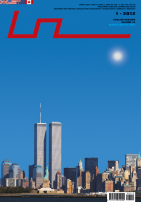
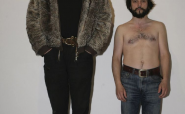

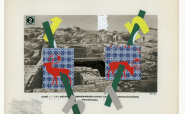
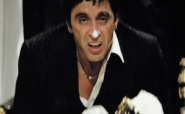
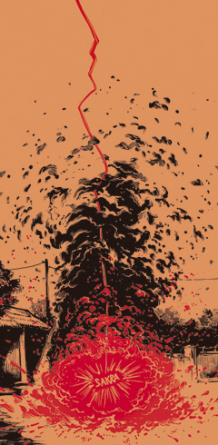











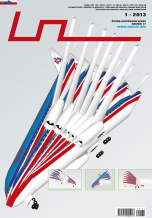

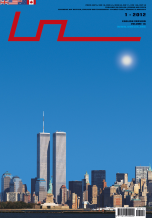
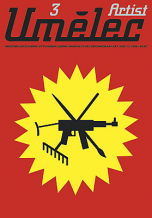


 New book by I.M.Jirous in English at our online bookshop.
New book by I.M.Jirous in English at our online bookshop.
Comments
There are currently no comments.Add new comment